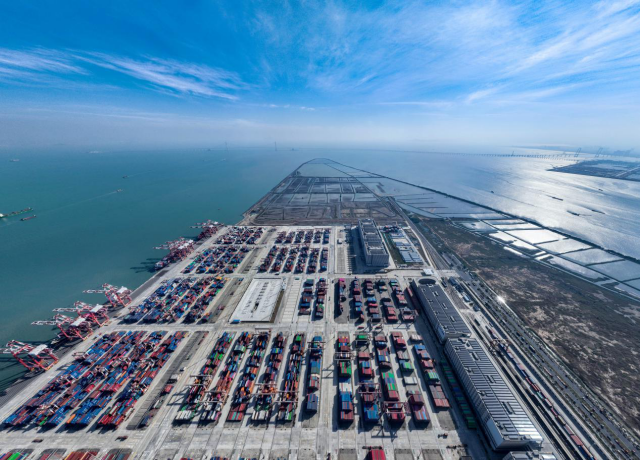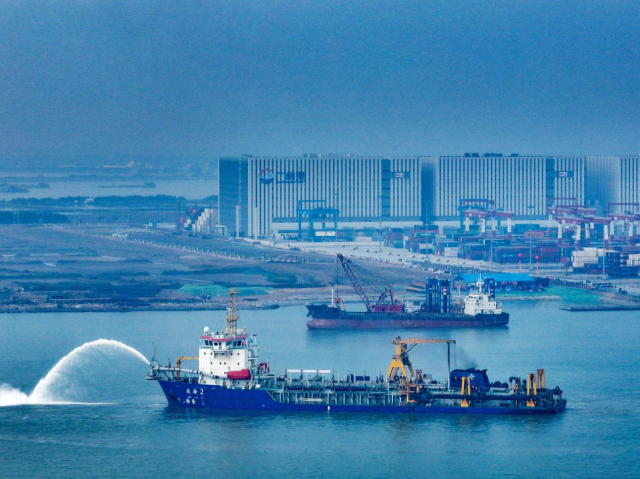Guangzhou will establish port economic zones in the districts of Nansha and Huangpu, according to a recent three-year action plan for the construction of the Guangzhou international shipping hub issued by the city.
The plan states that from 2024 to 2026, Guangzhou Port aims to achieve a cargo throughput of 700 million tons, a container throughput of 27 million TEUs, a sea-rail intermodal volume of 800,000 TEUs, as well as a commodity automobile throughput of 1.6 million vehicles. Additionally, three new international friendship ports will be established.

Photo: Nanfang Daily
Guangzhou City will work together with the districts of Nansha and Huangpu to optimize the industrial structure, transportation structure, land use structure, and spatial layout of ports, harbor industries, and urban services.
In terms of industrial planning, the port economic zones will establish a "harbor-industry-city-intelligence" integrated industrial system centered on shipping logistics, harbor industry, modern services, and smart technology innovation.
Regarding industrial layout, the zones will prioritize the development of intelligent and connected vehicles & new energy vehicles, advanced materials, modern high-end smart equipment, new-generation information technology (including integrated circuits and semiconductors), marine technology, aerospace, new energy, and digital economy industries.

Photo by Nanfang Daily
The plan also outlines the advancement of three key industrial clusters, including automotive logistics, cold chain logistics, and marine engineering equipment. This includes striving to incorporate Shazi Island into the Nansha Comprehensive Bonded Zone, fostering and attracting supporting enterprises in the marine engineering equipment industry chain to concentrate on Longxue Island.
Furthermore, Guangzhou will expedite the cultivation of new formats in the harbor and shipping economy. This includes accelerating the development of international consolidated cargo distribution, supporting enterprises in establishing consolidated cargo warehousing and transportation networks to create an international consolidated cargo center. Also, the city will support the establishment of duty-free shopping operations in Nansha and expand the application of low-altitude intelligent aerial vehicles in port logistics.
Guangzhou will continue to promote the development of modern shipping services, such as shipping trading centers, modern shipping finance, maritime services, and maritime legal arbitration services. Relying on the Zhujiang New Town, Guangzhou International Finance Center, and Nansha Financial Island, Guangzhou will strive for pilot offshore finance for international shipping businesses.
Reporter | Abby
Editor | Nan, Nina, James
















